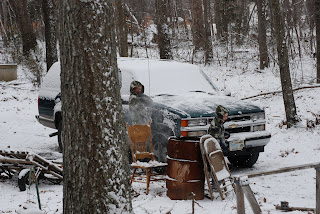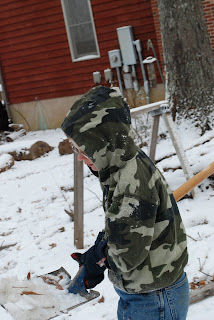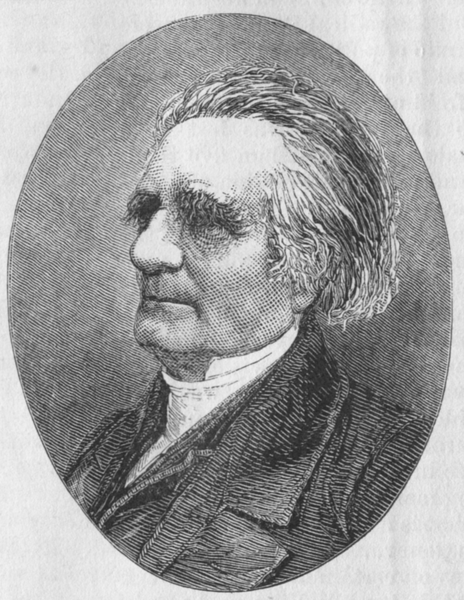
based on Trumpeter of God by William Stanford Reid
The author of Trumpeter of God is William Stanford Reid. John Knox was a godly man who was one of the important reformers in the Scottish Reformation. One of the things that he is most known for is his book, The First Blast of the Trumpet Against the Regime of Monstrous Women. He is also known for his conversations with Mary Queen of Scots about the sermons he had preached before her. Some of the most important characteristics to the Scottish Reformation he showed in his life were respect for authority, boldness, and trust in God. It seems that without these characteristics the Reformation in Scotland would not have been nearly as useful as it was, but it is clear that God provided it with John Knox who was one of the main figures in it.
John Knox's first trait that will be discussed is respect for authority. This was one of the traits that was important to John Knox in his conversations with Mary Queen of Scots. John Knox was one of the of people who agreed that Mary should be dethroned for not doing her duty towards the people, but he also said that she should be restored to her throne if she repented. This is what he said:
And therefore it shall be profitable to your Majesty to consider what is the thing your Grace's subjects look to receive of your Majesty, and what it is that ye ought to do unto them by mutual contract. They are bound to you and that not but in God. Ye are bound to keep the laws unto them. Ye crave of them service: they crave of you protection and defense against wicked doers. Now, Madam, if ye shall deny your duty unto them . . . think ye to receive full obedience of them? I fear Madam, ye shall not.
Knox is saying why he thinks that she should be dethroned and his beliefs on her responsibility. In his first conversation with her about him preaching against princes rejoicing over the destruction of Christians which she believed was against her:
When Mary heard of his criticisms she promptly summoned Knox to Holyrood, where, surrounded by some of her court including Moray, Morton, and Lethington, and the guards who had reported his statements, she accused him of speaking irrelevantly of her, of stirring up the people against her, and exceeding the bounds of his text. Thereupon he proceeded to outline to her his sermon in which he had made no direct reference to her. Apparently realizing that she had no ground for complaint, she then spoke more kindly to him saying that if she did anything of which he did not approve he should come to her privately.
Knox did not refuse to come to her, or tell her that he was right even if he did say things against her, but instead he kindly shows her how he was not speaking directly to her. Here it is seen that he respected the authority in his defense and in what he was being called about to do. Even though Knox respected the authority, he still was very bold in preaching the gospel and speaking the truth to Queen Mary.
The second characteristic was that John Knox was bold before Queen Mary and would not stop preaching when she told him to. “Knowing that [Mary's command for him to speak privately] would inhibit [Knox's] freedom to preach, he pointed out that he was called to the public ministry not to wait at princes' doors to whisper in their ears. If she wished to hear his views on any matter she could do so by attending the services in St. Giles.” He would only speak the truth and not what people wanted him to say but what God wanted him to say. If he saw a problem with something he would preach a sermon on it; He did not care if whoever had the problem wanted him to preach against it even if it was the Queen. Queen Mary did not like this because if he saw a problem in her then he would preach a sermon against it and she did not like this because he revealed her sins to her and all of the rest of the nation. He believed that the church was a separate sphere of authority from the church and the civil government could not control the church. He did not think that the ruler should be able to make him be quiet or limit what he could preach. Because of this reason Mary tried to get him to stop preaching but he believed that God wanted him to speak the truth and was not afraid of Queen Mary's threats.
Here it is also see that John Knox trusted in God when Queen Mary threatened him so he was not afraid. After Queen Mary had threatened him, “some were surprised at his lack of fear, but his reply was, 'I have looked in the faces of many angry men, and yet have not been afraid above measure'. Mary had again failed to silence the one whom she regarded as the chief obstacle to her plans to re-establish [Roman-Catholicism] in Scotland.” This shows that he was not afraid of the threats by Mary, and also because the Parliament was in favor of him they would not let Queen Mary carry out her threats against him. The reason for this was that he feared God and he did not fear man's threats. He was not a man to preach what the rulers wanted him to. Mary did not like him speaking but there was no way that she could shut him up.
Here is an explanation of why respect for authority, boldness, and trusting in God were the most important traits that were useful to him in the Scottish Reformation and his conversations with Queen Mary. The respect for authority was one of the most useful traits in his conversations with Queen Mary, but he would not of been as useful to the Reformation if he had not preached his message with boldness. He would not have had so much boldness had it not been for his belief in God and his trust in him to protect him from his enemies. Because of this it seems that his trust in God was the most important trait because if he did not have it he would not have had the ability to be bold because he would not have had anything to trust in and Mary would not have called him if he had not spoken bold things which offended her.
Click Here to buy Trumpeter of God: A Biography of John Knox

































